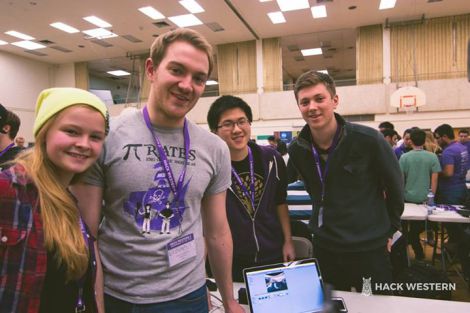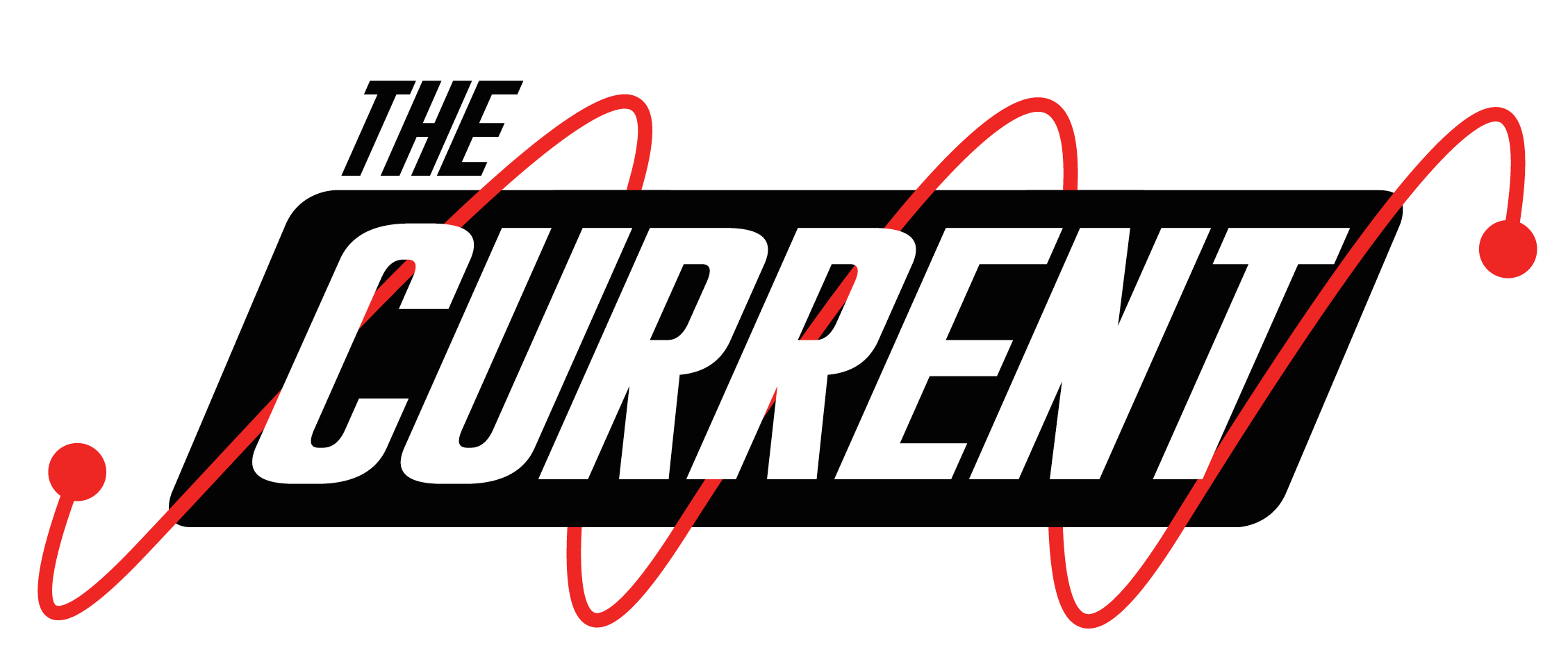By Nicole Lam
Remember that one weekend last February, when UCC was packed with hordes of hackers in purple shirts and lanyards, some working on their laptops in the classrooms and others asleep on the couches in Mustang Lounge? That was the first Hack Western ever, and it came back this year with the tall task of being even better than its precursor.
Western held its second annual hackathon in November at Althouse College. Although this year’s event was met with a large number of enthusiastic participants, hackathons are still a relatively new and unknown concept at Western. Amy Xu, of the promotions team for Hack Western, describes them as “well-supported environment[s] for you to work on something you love that’s software and tech-related.” In a nutshell, university and high school students from all over Ontario are given 36 hours to develop a project in teams, while being provided mentorship and cool hardware to use. On the last day, teams present their project in a showcase to other delegates, sponsors, tech firm recruiters, and judges.
Hack Western differs from other hackathons, such as Hack the North at Waterloo and McHacks at McGill, because of its smaller scale. “It’s a more intimate feel,” says Amy, “the delegate to sponsor and mentor ratio is also lower. So we get [to be] more hands-on, you get more help from them [the mentors and sponsors] … it’s a good place to start with.”
Amy also explains the particular advantage Western students get from attending Hack Western. “We have more local London tech firms, so that you can find something near you to work for. Hack Western … is also a recruiting process, so sponsors do get your resumes … to find good programmers for their companies.”
Despite the exciting atmosphere and networking opportunities, the project showcase is definitely the highlight of the weekend. One team composed of Western engineering students Tyler Lacroix (2nd year Mechatronics), Pieter Van Gaalen (2nd year Mechatronics), Ivan Yung (2nd year Computer), and Dana Zagar (2nd year Software) worked on a project that the rec centre could definitely use.

“Usually in the gym, while you’re doing cardio or exercising on a bike, you’re looking at a blank wall, and that’s not very fun. So…we decided to pair up the Oculus [Rift] (virtual reality headset) with the exercise bike so that you could immerse yourself in many different environments while you bike.” says Pieter, during the demo. He also adds that the speed of the fan in front of the user varies depending on how fast they pedal to simulate biking outside.
Another team composed of Western students Brandon Assing (2nd year Software Engineering), Wallace Chan (2nd year Medical Science), Jonathan Copeland (2nd year Mechatronics Engineering) and McMaster student Zachary Asis (2nd year Engineering Physics) built a device that can turn off or adjust the dimness of lights without having to get out of bed. The team shows how hand gestures are recognized by Leap Motion (hand gesture recognition) which works together with Arduino (open source prototyping platform) to control dimness of the lights.

Hackathons can seem intimidating, especially the competition aspect, but they act primarily as an opportunity to learn. Dana says, “Definitely participate, even if it seems daunting at first and you don’t have a lot of programming experience… You can learn a lot from experienced hackers who are here… so just go for it – don’t be scared or intimidated.”
Knowing how to code or program is definitely not a requirement to participate. Amy explains how students from any background can benefit from attending hackathons, particularly those who intend to do research. With the rapid expansion of the technology industry, it is becoming increasingly advantageous to learn how to program. “4th year students working on their thesis projects … analyze their research data with computer science, and their professors usually require them to self-learn C++ [and] Java… We’re at this stage in history … where everyone needs some sort of coding background because we’re relying so heavily on technology now.”



